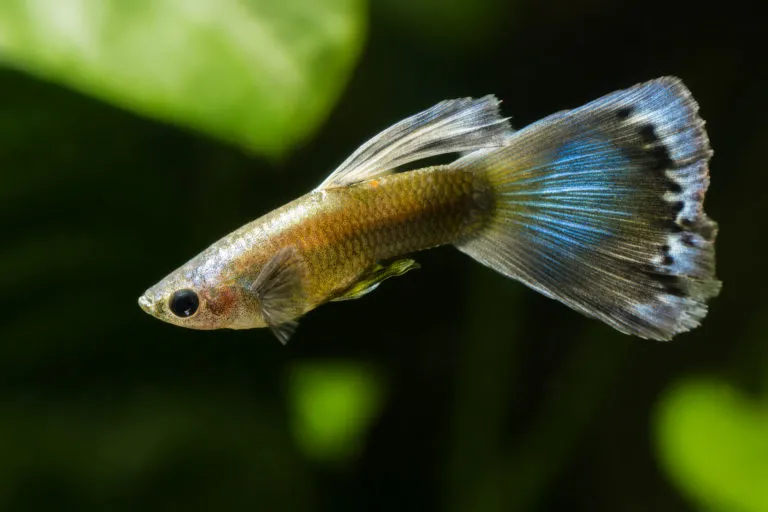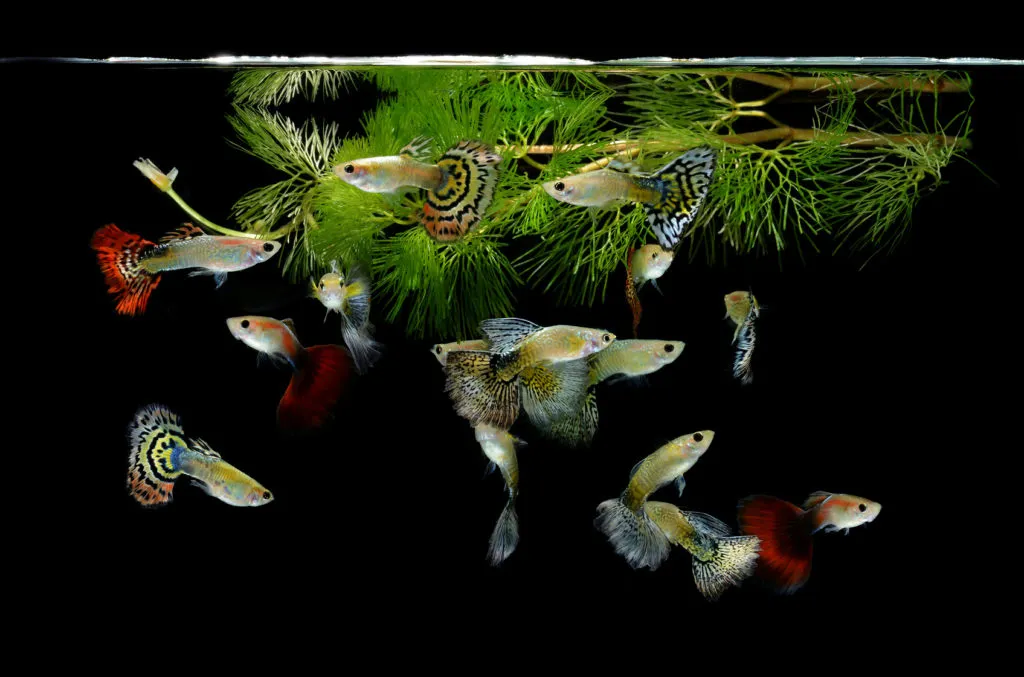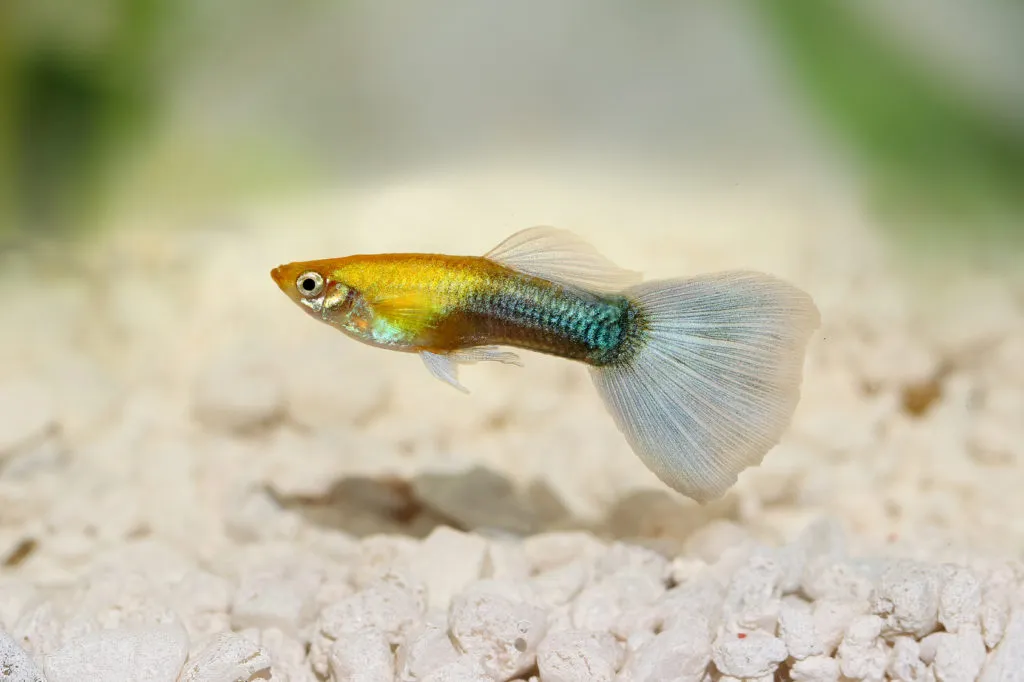Guppies are not endangered and thus not protected. Due to their rapid reproduction and popularity in aquaristics, they are also called million fish. Guppies have extensive distribution, ranging from the northern Amazon across northern South America and the Lesser Antilles. They inhabit the edges of almost all waters, including the brackish water of river mouths. They avoid deep waters, preferring streams and the banks of rivers. These diurnal fish usually stay in the middle and surface zones of the water.
Guppies are hardy and adapt well to their surroundings. After a few generations, they can even withstand temperatures around 12°C. Due to their resilience and to control mosquito populations, guppies have been introduced in many parts of the world. This was aimed at fighting diseases transmitted by mosquitoes. This beneficial effect is also utilised at thermal springs.
Guppy Diet in the Wild and Aquarium
Guppies are omnivores and not very picky about their food. This applies both in the wild and in the aquarium. However, they particularly enjoy floating food.
Live food is excellent for providing all the necessary nutrients. Occasionally, guppies will graze on stones and roots of algae or nibble on delicate plants. They digest their food in about 45 minutes, so aquarium owners should feed them frequently but in small amounts. A fasting day per week is beneficial for their health, relieving the digestive tract and fostering the development of young fish.
Dry Flakes are fed most frequently because they are very easy to handle. With 80% water content, the flakes are very similar to natural food. They also contain the optimal combination of nutrients. Once the pack is opened, the minerals and vitamins break down relatively quickly. The dry food should therefore be used up within three months.
Flakes decompose in water after 40 minutes, granules remains stable in water for at least four hours. Therefore, many owners tend to use granules. Frozen food is also very suitable for feeding, but must not have any frost burn. It must be fed frozen. Live food comes closest to natural behaviour, but is more expensive to obtain. In the wild, guppies hunt small young fish, aquatic insects, mosquito and insect larvae, spiders and animals that have fallen onto the water such as snails and worms. When feeding the aquarium. You should never give more than the group can eat within five minutes.


